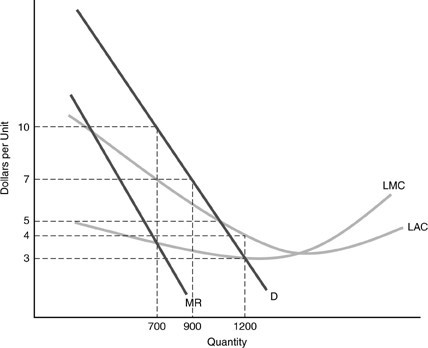Suppose a ski resort decides to sell its lift tickets "below cost" all season long, charging $20 per day as opposed to $30 per day. In principle, how would each ticket sale affect GDP?
A) GDP would fall by $10.
B) GDP would rise by $10.
C) GDP would rise by $20.
D) GDP would rise by $30 after the appropriate cost-price adjustment has been made.
C
You might also like to view...
Which of the following provides the strongest argument for young people making regular payments into a retirement program that invests these funds in a diverse set of stocks?
a. The prices of stocks tend to fluctuate more than the prices of bonds. b. Over short periods of time, variation in the real rate of return of stocks is greater than bonds. c. When held over lengthy periods like 30 or 40 years, historically, the rate of return on stocks has been both higher and less variable than that of bonds. d. Lower interest rates will lead to higher bond prices.
 In the above figure, what would be the profit or loss at the marginal cost pricing point for this natural monopolist?
In the above figure, what would be the profit or loss at the marginal cost pricing point for this natural monopolist?
A. -$1,200 B. $2,100 C. -$300 D. $2,700